Filter by

Platonic occasions: dialogues on literature, art and culture
In Platonic Occasions, Richard Begam and James Soderholm reflect upon a wide range of thinkers, writers and ideas from Plato, Descartes and Nietzsche to Shakespeare, the Romantics and the Moderns—from Evil, Love and Death to Art, Memory and Mimesis. The dialogues suggest that Percy Shelley was right when he claimed “We are all Greeks,” and yet what have we learned about the initiatives of…
- Edition
- -
- ISBN/ISSN
- 9789176350003
- Collation
- 206 p.; 22 cm.
- Series Title
- Stockholm English Studies
- Call Number
- 100 SOD p
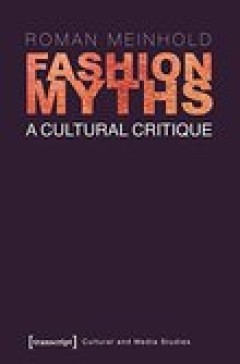
Fashion myths : a cultural critique
Besides products and services multinational corporations also sell myths, values and immaterial goods. Such 'meta-goods' (e.g. prestige, beauty, strength) are major selling points in the context of successful marketing and advertising. Fashion adverts draw on deeply rooted human values, ideals and desires such as values and symbols of social recognition, beautification and rejuvenation. Althoug…
- Edition
- -
- ISBN/ISSN
- 9783837624373
- Collation
- 157 p.; 22 cm.
- Series Title
- -
- Call Number
- 391.001 MEI

Contemporary natural philosophy and philosophies - Part 1
Modern information communication technology eradicates barriers of geographic distances, making the world globally interdependent, but this spatial globalization has not eliminated cultural fragmentation. The Two Cultures of C.P. Snow (that of science–technology and that of humanities) are drifting apart even faster than before, and they themselves crumble into increasingly specialized domain…
- Edition
- -
- ISBN/ISSN
- 9783038978220
- Collation
- 350 p.; 22 cm.
- Series Title
- -
- Call Number
- 501 DOD
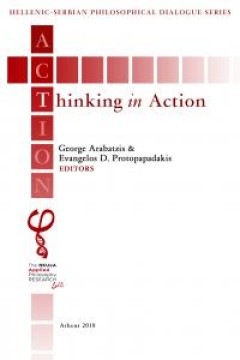
Thinking in action
Action can only be spontaneous and impulsive if not guided by contemplation; contemplation, on the other hand, may only be luxurious playfulness if not either purposed - or suitable - to motivate action. This volume seeks to prove what may seem self-evident to common sense, but adhering to common sense is never pointless nor excessive. Next to this, Thinking in Action is the offspring of friend…
- Edition
- -
- ISBN/ISSN
- 9786188372900
- Collation
- 138 p.; 22 cm.
- Series Title
- Hellenic-Serbian Philosophical Dialogue Series; Vol. I
- Call Number
- 153.42 EVA
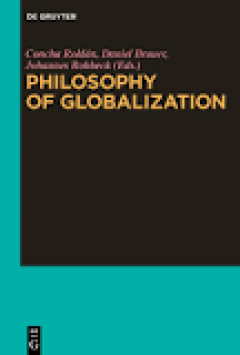
Philosophy of globalization
The aim of the publication is both to provide the debates on globalization with a genuine philosophical perspective by working out its normative dimensions, and to scientifically ground the ethical-philosophical discourse on global responsibility. Other topics addressed are the altering consciousness of space and time, and globalization as a discourse, as an ideology and as a symbolic form
- Edition
- -
- ISBN/ISSN
- 9783110544671
- Collation
- 480 p.; 23 cm.
- Series Title
- -
- Call Number
- 150 ROL p
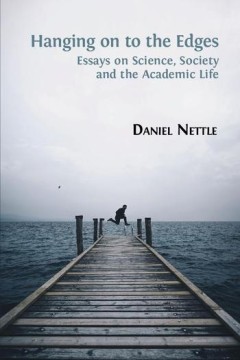
Hanging on to the edges : essays on science, society and the academic life
What does it mean to be a scientist working today; specifically, a scientist whose subject matter is human life? Scientists often overstate their claim to certainty, sorting the world into categorical distinctions that obstruct rather than clarify its complexities. In this book Daniel Nettle urges the reader to unpick such distinctions—biological versus social sciences, mind versus body, and …
- Edition
- -
- ISBN/ISSN
- 9781783745821
- Collation
- 262 p.; 23 cm.
- Series Title
- -
- Call Number
- 802.4 NET h
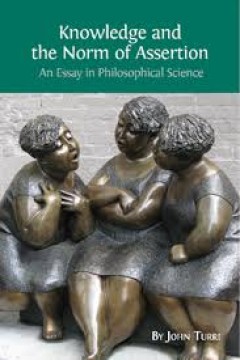
Knowledge and the norm of assertion: an essay in philosophical science
- Edition
- -
- ISBN/ISSN
- 9781783741861
- Collation
- x + 116 p.; 23 cm.
- Series Title
- -
- Call Number
- 306.44 JOH k
- Edition
- -
- ISBN/ISSN
- 9781783741861
- Collation
- x + 116 p.; 23 cm.
- Series Title
- -
- Call Number
- 306.44 JOH k
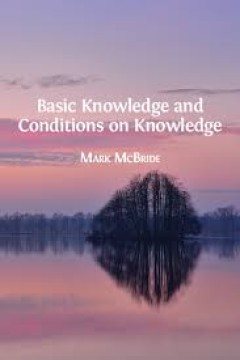
Basic knowledge and conditions on knowledge
- Edition
- -
- ISBN/ISSN
- 9781783742868
- Collation
- 238 p.; 23 cm.
- Series Title
- -
- Call Number
- 121 MAR b
- Edition
- -
- ISBN/ISSN
- 9781783742868
- Collation
- 238 p.; 23 cm.
- Series Title
- -
- Call Number
- 121 MAR b
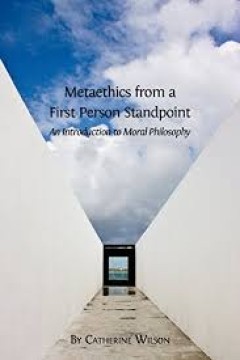
Metaethics from a first person standpoint: an introduction to moral philosophy
- Edition
- -
- ISBN/ISSN
- 9781783742011
- Collation
- viii + 124 p.; 23 cm.
- Series Title
- -
- Call Number
- 170.42 CAT m
- Edition
- -
- ISBN/ISSN
- 9781783742011
- Collation
- viii + 124 p.; 23 cm.
- Series Title
- -
- Call Number
- 170.42 CAT m
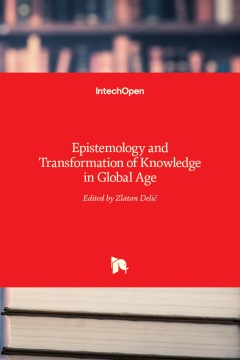
Epistemology and transformation of knowledge in global age
This book consists of seven chapters containing multiple questions of the global socially epistemological situation in science and higher education. Despite the progress of techno-sciences, we are facing blind flaws in leading systems of knowledge and perception. The global era, in a paradox way, connects the new knowledge of economics, postpolitics, postdemocracy, and biopolitical regulation o…
- Edition
- -
- ISBN/ISSN
- 9789535133872
- Collation
- 148 p.; 22 cm.
- Series Title
- -
- Call Number
- 100 EPI e
 Computer Science, Information & General Works
Computer Science, Information & General Works  Philosophy & Psychology
Philosophy & Psychology  Religion
Religion  Social Sciences
Social Sciences  Language
Language  Pure Science
Pure Science  Applied Sciences
Applied Sciences  Art & Recreation
Art & Recreation  Literature
Literature  History & Geography
History & Geography